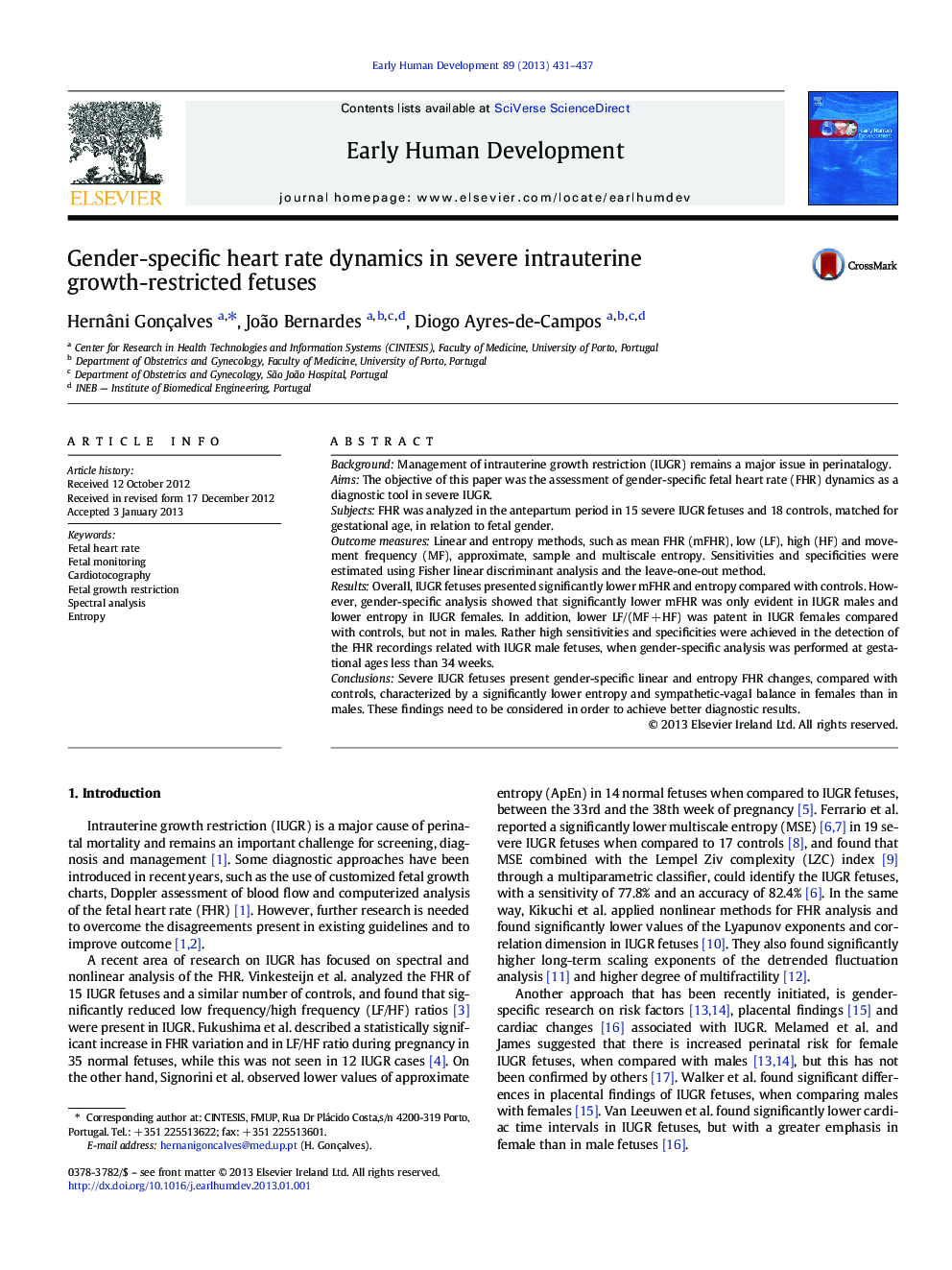| Article ID | Journal | Published Year | Pages | File Type |
|---|---|---|---|---|
| 3916690 | Early Human Development | 2013 | 7 Pages |
BackgroundManagement of intrauterine growth restriction (IUGR) remains a major issue in perinatalogy.AimsThe objective of this paper was the assessment of gender-specific fetal heart rate (FHR) dynamics as a diagnostic tool in severe IUGR.SubjectsFHR was analyzed in the antepartum period in 15 severe IUGR fetuses and 18 controls, matched for gestational age, in relation to fetal gender.Outcome measuresLinear and entropy methods, such as mean FHR (mFHR), low (LF), high (HF) and movement frequency (MF), approximate, sample and multiscale entropy. Sensitivities and specificities were estimated using Fisher linear discriminant analysis and the leave-one-out method.ResultsOverall, IUGR fetuses presented significantly lower mFHR and entropy compared with controls. However, gender-specific analysis showed that significantly lower mFHR was only evident in IUGR males and lower entropy in IUGR females. In addition, lower LF/(MF + HF) was patent in IUGR females compared with controls, but not in males. Rather high sensitivities and specificities were achieved in the detection of the FHR recordings related with IUGR male fetuses, when gender-specific analysis was performed at gestational ages less than 34 weeks.ConclusionsSevere IUGR fetuses present gender-specific linear and entropy FHR changes, compared with controls, characterized by a significantly lower entropy and sympathetic-vagal balance in females than in males. These findings need to be considered in order to achieve better diagnostic results.
